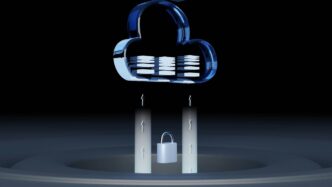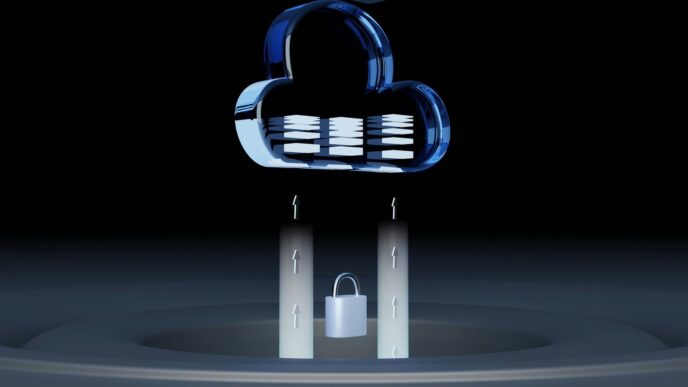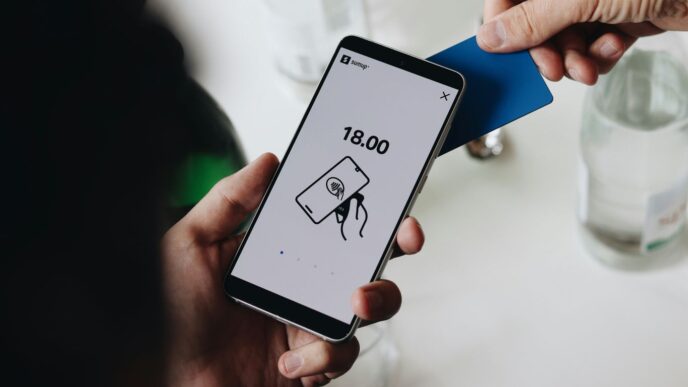With more people online than ever, staying safe digitally is super important. It feels like every day there’s a new way someone might try to trick you or get your info. Think about how many things we do online now – banking, shopping, talking to friends. It’s easy to forget that not everyone out there has good intentions. This article breaks down some basic facts about internet safety you really need to know for 2025, so you can keep your personal stuff secure and just enjoy being online without a constant worry.
Key Takeaways
- Be careful about what personal information you share online, especially on public sites. Hackers can piece together small bits of info to target you.
- Always check if a website looks legit before clicking anything. Look for the padlock and ‘https’ in the address bar, and watch out for bad spelling or weird ads.
- Use strong, unique passwords for all your accounts and consider a password manager. Don’t reuse passwords, ever.
- Keep your software and apps updated. This helps fix security holes that hackers might try to use, like in ‘zero-day’ attacks.
- Be wary of unexpected downloads or links, even if they seem to come from someone you know. When in doubt, don’t click or download.
Understanding Evolving Cyber Threats

The digital world is always changing, and so are the ways bad actors try to get to your information. It’s not just about viruses anymore; things have gotten way more sophisticated. We’re seeing new kinds of attacks pop up all the time, and staying ahead of them means knowing what’s out there.
Artificial intelligence, or AI, isn’t just for making cool new apps or helping cars drive themselves. Unfortunately, it’s also being used by cybercriminals. AI tools can help them create more convincing scam emails, automate the process of finding weaknesses in systems, and even generate code for malware. This means attacks can be launched faster and on a much larger scale than before. AI is essentially lowering the barrier to entry for cybercrime, making it easier for even less skilled individuals to carry out complex attacks.
Have you heard of deepfakes? These are fake videos or audio recordings that look and sound incredibly real, often using AI to mimic someone’s voice or likeness. Scammers can use deepfakes to impersonate people, like a CEO asking for a wire transfer or a family member asking for money in an emergency. The implications are pretty serious, as it can lead to significant financial loss and damage to reputations. It’s getting harder to tell what’s real and what’s not, which is why being extra careful with requests for money or sensitive information is more important than ever. You can find more information on how technology is changing our lives at Google’s driverless cars.
Think about all the connected devices you have: smart TVs, thermostats, security cameras, even your fridge. These are part of the Internet of Things, or IoT. While they offer convenience, they also create more entry points for attackers if they aren’t properly secured. Many IoT devices aren’t built with strong security in mind, making them easy targets. If an attacker gains access to one of these devices, they might be able to spy on you, use it to launch attacks on other devices on your network, or even gain access to your main computer. It’s a good idea to check the security settings on all your connected gadgets.
Protecting Your Personal Information Online
It’s easy to get caught up in the convenience of the internet, but we often forget how much personal stuff we’re putting out there. Think about it: your name, address, birthday, maybe even your pet’s name. All this information, scattered across different sites, can be a goldmine for people who want to do bad things.
The Importance of Limited Personal Data Sharing
We live in a world where sharing is the norm, but online, it’s a bit different. Sharing too much can really backfire. Hackers are pretty good at piecing together bits of info you’ve shared, sometimes over years, to build a profile on you. This can lead to identity theft or make you a target for scams. So, it’s smart to be stingy with your details, especially on public forums or social media. Think before you post that vacation photo with your exact location tagged – maybe wait until you’re back home.
- Be mindful of what you share on social media. Avoid posting sensitive details like your full birthdate, home address, or phone number publicly.
- Review privacy settings regularly. Most platforms have settings that control who sees your posts and information. Make sure they’re set to your comfort level.
- Question why a website needs certain information. If a site asks for more data than seems necessary for its service, be suspicious.
Recognizing and Avoiding Phishing Attempts
Phishing is a big one. These are those sneaky emails or messages that look like they’re from a real company, like your bank or a delivery service. They often try to scare you into clicking a link or giving up your login details. For example, you might get an email saying there’s a problem with your account and you need to log in immediately. Always check the sender’s email address carefully; often, a single misspelled letter can give it away. If you’re unsure, don’t click the link. Instead, go directly to the company’s official website or call them using a number you know is correct. It’s better to be safe than sorry when it comes to your accounts.
Safeguarding Against Identity Theft
Identity theft is a serious problem. It happens when someone steals your personal information and uses it to pretend to be you, often to open new accounts or make fraudulent purchases. Keeping your accounts secure is a big part of preventing this. This means using strong, unique passwords for everything and being cautious about where you enter your information. If your phone or computer falls into the wrong hands, features like auto-fill can be a risk, so consider turning it off for sensitive information. Protecting your devices is also key to securing your accounts.
Here are a few steps to help protect yourself:
- Use strong, unique passwords. Don’t reuse passwords across different sites. Consider a password manager.
- Enable two-factor authentication (2FA) whenever possible. This adds an extra layer of security beyond just your password.
- Monitor your financial accounts and credit reports regularly. Look for any unusual activity that might indicate your identity has been compromised.
Practicing Safe Browsing Habits
So, you’re online, maybe doing some shopping, catching up with friends, or just browsing. It’s easy to get caught up in what you’re doing and forget that not every corner of the internet is friendly. Think of it like walking down a street – you wouldn’t just wander into any old alley, right? The same applies online. We need to be smart about where we click and what we look at.
Identifying Trustworthy Websites
How do you know if a website is legit? It’s not always obvious, especially with how good some fake sites look these days. One of the first things to check is the web address itself. Look for https:// at the start, not just http://. That ‘s’ means the connection is likely encrypted, which is a good start. Most browsers will also show a little padlock icon next to the address if it’s secure. Beyond that, a real website usually has a clear privacy policy and contact information. If a site seems to have tons of spelling errors, weird ads popping up everywhere, or prices that are just too good to be true, those are usually red flags. You can also use tools like the Google Transparency Report to check a site’s safety before you commit to anything. It’s a quick way to get a second opinion on a site’s reputation.
The Dangers of Suspicious Links and Pop-Ups
Cybercriminals love to use catchy headlines or fake offers to get you to click on something you shouldn’t. They might send emails that look like they’re from your bank or a delivery service, claiming there’s a problem. Clicking that link could lead to stolen login details or financial info. It’s like getting a suspicious package in the mail – you wouldn’t just open it without thinking. Before clicking any link, especially if it’s unexpected or seems a bit off, take a moment to pause. If you’re unsure, it’s always better to go directly to the company’s official website instead of clicking a link in an email or message. Many browsers are getting better at warning you about deceptive links, but it’s still up to us to be cautious. Remember, one careless click can cause a lot of trouble.
Securing Your Online Accounts
Your online accounts are like doors to your digital life. Making sure they’re locked up tight is super important. This means using strong, unique passwords for each account. Don’t use your birthday or your pet’s name! Think about using a mix of letters, numbers, and symbols. A password manager can really help with this, creating and storing complex passwords for you. Also, if a service offers two-factor authentication (2FA), turn it on. It’s an extra layer of security, usually involving a code sent to your phone, that makes it much harder for someone else to get into your account even if they somehow get your password. Keeping your accounts secure is a big part of staying safe online.
Strengthening Your Digital Defenses
So, we’ve talked about the threats out there, and now it’s time to build up your defenses. Think of it like locking your doors and windows at night, but for your digital life. It’s not about being paranoid, it’s just about being smart.
The Necessity of Strong, Unique Passwords
Look, I know, nobody likes creating and remembering a bunch of different passwords. It feels like a chore. But honestly, using the same password everywhere is like leaving your house key under the doormat. If one place gets compromised, suddenly everywhere is compromised. We’re talking about your bank accounts, your email, your social media – everything. A strong password is your first line of defense. What makes one strong? It’s a mix of upper and lowercase letters, numbers, and symbols. And length matters! Aim for at least 12 characters, maybe even more. Don’t use personal info like birthdays or pet names. And please, for the love of all that is digital, don’t reuse them. Password managers can be a lifesaver here, helping you generate and store these complex codes securely. It’s a small step that makes a huge difference.
The Role of Antivirus Software
Antivirus software is like your digital immune system. It’s designed to detect, prevent, and remove malicious software, or malware. Malware can come in many forms, from viruses that replicate themselves to ransomware that locks up your files until you pay. Even older threats from the MS-DOS era, like the Casino virus, are now safely viewable in a "Malware Museum" thanks to cybersecurity experts, but modern malware is far more sophisticated. Your antivirus software scans files, checks websites, and monitors your system for suspicious activity. Keeping it updated is just as important as having it in the first place, because new threats pop up constantly. Think of it as getting your flu shot every year – you need the latest protection.
Utilizing Ad-Blockers for Privacy
Those pop-up ads and banners aren’t just annoying; many of them are designed to trick you. Some might try to get you to click on malicious links, while others contain hidden tracking scripts that follow you around the web. Ad-blockers can help clean up your browsing experience by stopping these ads from appearing. More importantly, they can block those sneaky trackers, which means less of your online activity is being collected and sold. It’s a simple tool that adds a good layer of privacy to your everyday browsing. It’s worth checking out options like Malwarebytes Browser Guard for a safer online journey.
Staying Vigilant Against New Threats
The online world is always changing, and so are the ways bad actors try to get to your stuff. It’s not just about knowing the old tricks; you’ve got to keep an eye out for what’s new and coming up.
Zero-Day Attacks and Software Updates
So, what’s a zero-day attack? Basically, it’s when someone finds a security hole in software, like your operating system or an app, before the people who made it even know about it. They can then use this flaw to sneak malware onto your computer or steal your data. It’s like a burglar finding a window that’s not locked yet, and they can get in before anyone even realizes the window is broken. The best defense here is to keep everything updated. When software companies find these holes, they release updates, often called patches, to fix them. Make sure your computer and all your apps are set to update automatically. It’s a simple step, but it closes those unlocked windows before the burglars can use them. Staying informed about these updates is a good habit for public servants to protect their work data.
The Risks of Unsecured Bluetooth Connections
We all love the convenience of Bluetooth, right? Connecting headphones, speakers, or even our phones to the car without wires. But if you leave Bluetooth on all the time, especially on older devices, you might be leaving a door open. There have been attacks, like the KNOB attack, where hackers could get into devices just by being nearby if the Bluetooth wasn’t set up right. Most newer devices have fixed these issues, but it’s still a good idea to turn off Bluetooth when you’re not actively using it. Think of it like not leaving your car running unattended, even if it’s in your driveway. It’s just an extra layer of caution.
Being Wary of Unexpected Downloads
This one seems obvious, but people still fall for it. Hackers are getting really good at making malicious files look like something you actually want or need. Maybe it’s a free game, a software update that looks official, or even a document from someone you think you know. If you download something from a sketchy website or an email you weren’t expecting, it could contain malware. This malware could steal your passwords, lock up your files, or give attackers access to your computer. Always double-check the source before you click download. If it seems too good to be true, it probably is. Stick to official websites and trusted sources for your downloads. It’s better to be safe than sorry when it comes to what you install on your devices.
Key Facts About Internet Safety
It’s pretty wild how many of us are online these days. Back in 2024, there were over 5.4 billion people using the internet, and that number keeps climbing. More people online means more chances for cybercriminals to try and get us. One wrong move, and you could be dealing with scams or someone stealing your info. But hey, the good news is that most of these problems can be avoided if we just stay aware and make smart choices. Let’s look at some important internet safety facts for 2025.
The Growing Number of Internet Users and Cybercrime
Think about it: the internet is everywhere now. This massive growth in users has also led to a big jump in cybercrime. In 2023 alone, over 6 billion malware attacks were detected worldwide. That’s a huge number! Phishing attacks are also a major problem, with many targeting social media and email services. It really shows how important it is to be careful with our online actions.
Consequences of Online Actions
What happens when you click a bad link or share too much personal info? Well, it can lead to some serious trouble. Hackers might steal your login details, drain your bank account, or even take over your identity. One careless click can have lasting effects. It’s like leaving your front door wide open; you wouldn’t do that in real life, so why do it online?
Here are a few common traps to watch out for:
- Suspicious Links and Pop-Ups: These often look like they’re from trusted sources, like your bank or a delivery company, trying to scare you into clicking.
- Oversharing Personal Details: Posting too much on social media can give hackers pieces of information they can use against you.
- Weak Passwords: Using simple passwords like ‘12345’ or your birthday makes it easy for someone to guess and get into your accounts.
The Need for Continuous Learning
Cyber threats don’t stand still; they change all the time. What was safe yesterday might not be safe tomorrow. That’s why staying informed is key. You need to keep up with new scams and security methods. It’s not a one-and-done thing; it’s an ongoing process. Regularly updating your software and being cautious about what you click are simple steps that make a big difference. For instance, checking if a website uses ‘https://’ and has a padlock icon is a basic but vital step in identifying trustworthy websites.
Remember, a little bit of awareness today can save you a lot of headaches down the road.
Staying Safe Online: It’s an Ongoing Thing
So, we’ve gone over a bunch of stuff about staying safe on the internet. It’s a lot to take in, I know. The online world is always changing, and so are the ways people try to trick you. But honestly, most of it comes down to just being a little more aware and not rushing into things. Think before you click, keep your passwords strong, and don’t share too much personal stuff. It’s not about being scared of the internet, it’s about using it smartly. By keeping these simple tips in mind, you can really cut down on the risks and enjoy everything the online world has to offer without too much worry. It’s really about making good habits, and those habits will help you out a lot in the long run.
Frequently Asked Questions
Why is internet safety so important now?
More people than ever are online, and sadly, that means more bad guys are out there too. Just one wrong click can lead to your information being stolen or your computer getting a virus. Staying safe online helps protect your personal stuff and keeps you from falling for scams.
What are ‘deepfakes’ and why should I care?
Deepfakes are fake videos or audio made using smart computer programs (AI). They can look or sound so real that they trick people. Scammers use them to pretend to be someone else, like a boss asking for money, which can lead to big losses.
How can I tell if a website is safe to use?
Look for ‘https://’ at the start of the web address and a little padlock symbol in your browser’s address bar. Also, check if the website has a privacy policy and if the writing on the page looks professional with few spelling mistakes. If a site seems shady or asks for weird payment methods, it’s best to leave.
What’s the best way to create strong passwords?
Don’t use easy-to-guess things like birthdays or your name. Mix uppercase and lowercase letters, numbers, and symbols. Using a different, strong password for every online account is super important. A password manager can help you keep track of them all.
What should I do if I get a suspicious email or message?
Never click on links or open attachments in emails from people you don’t know. If a message seems urgent or tries to scare you, it’s probably a scam. It’s safer to go directly to the company’s official website or call them using a number you know is real, instead of clicking the link in the message.
Are my smart devices (like smart TVs or watches) safe?
Many smart gadgets don’t have strong security built-in. This means hackers might be able to get into them more easily. It’s a good idea to keep the software on these devices updated and be careful about what information they can access.












